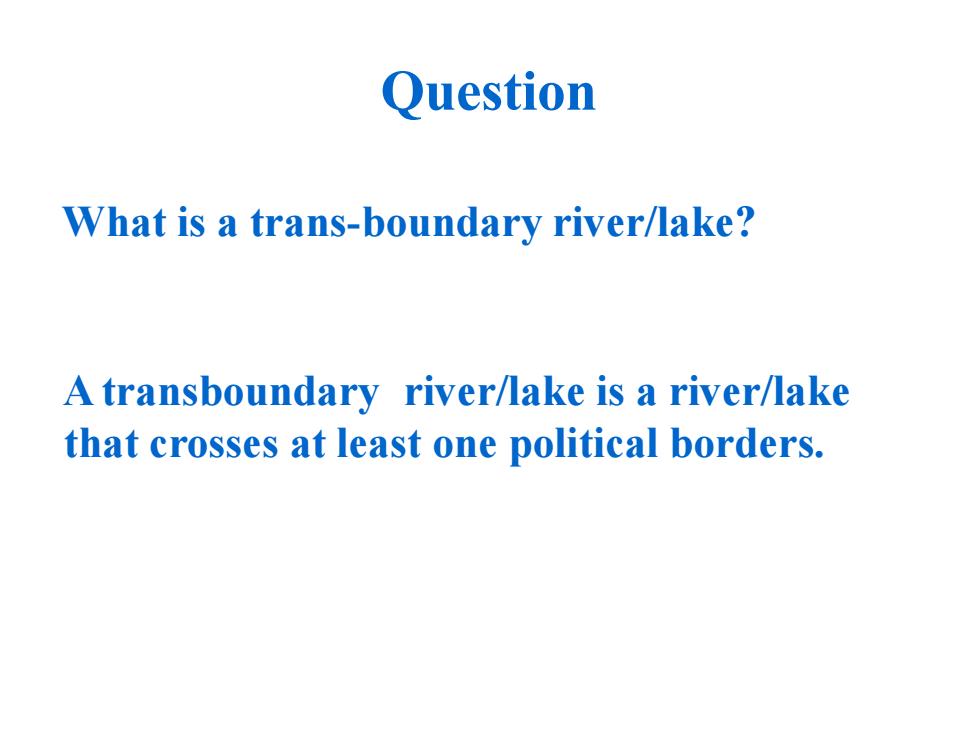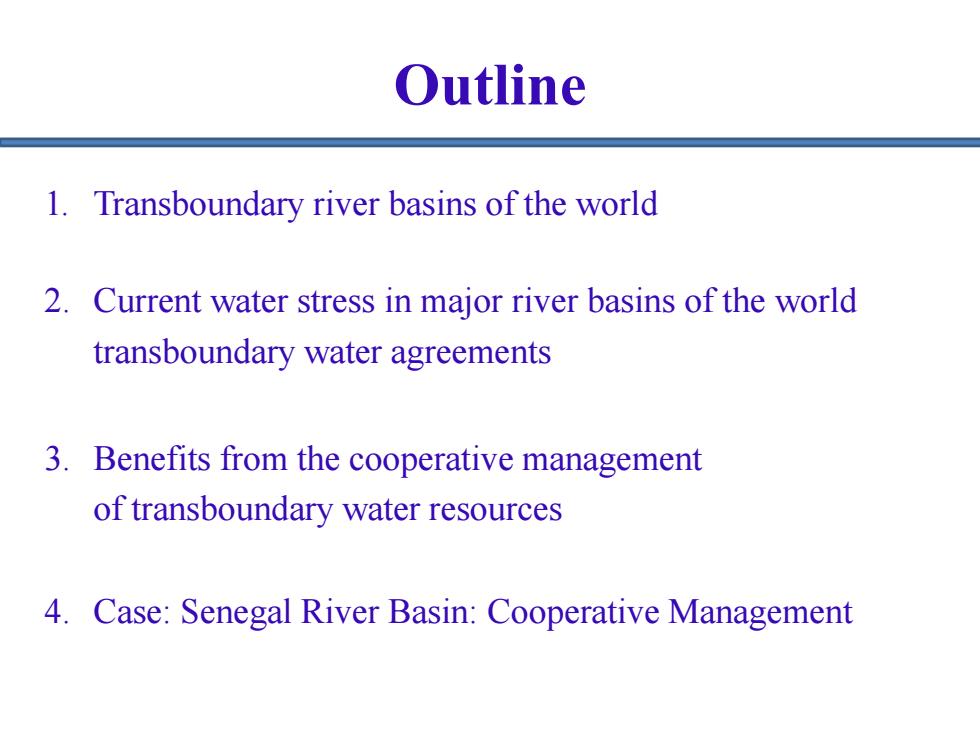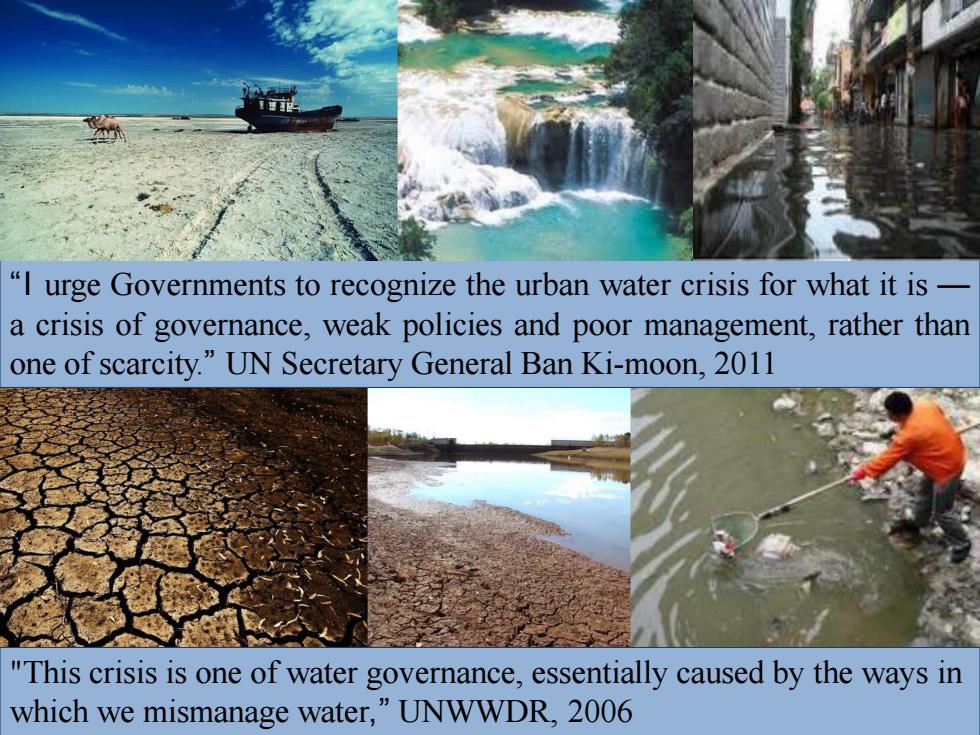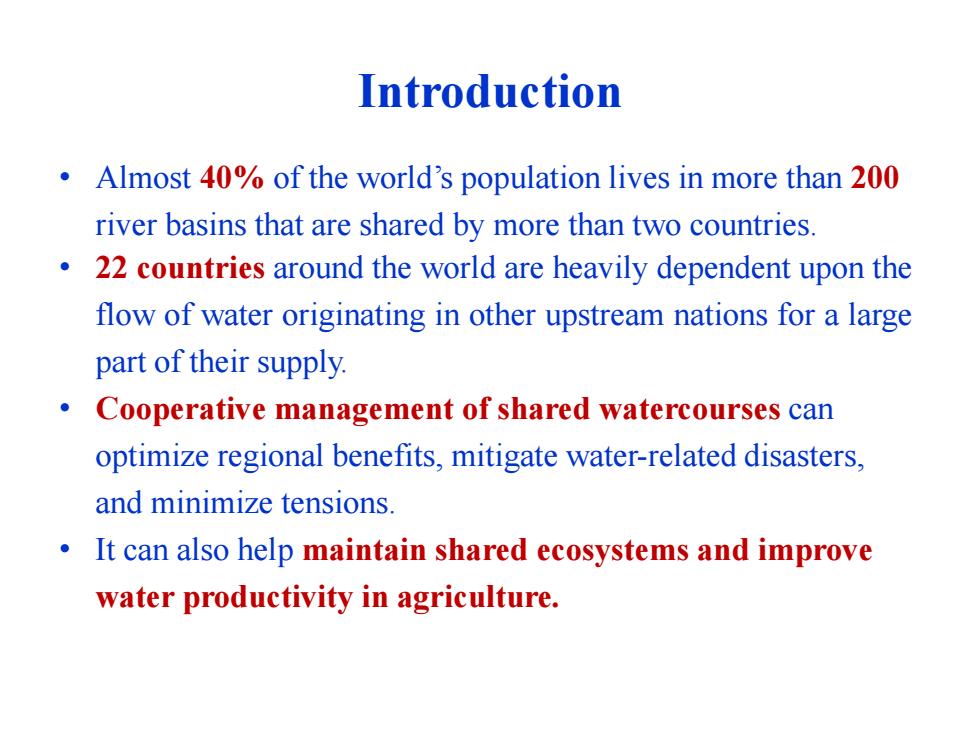
Question What is a trans-boundary river/lake? A transboundary river/lake is a river/lake that crosses at least one political borders
Question What is a trans-boundary river/lake? Atransboundary river/lake is a river/lake that crosses at least one political borders

Outline 1.Transboundary river basins of the world 2.Current water stress in major river basins of the world transboundary water agreements 3.Benefits from the cooperative management of transboundary water resources 4.Case:Senegal River Basin:Cooperative Management
1. Transboundary river basins of the world 2. Current water stress in major river basins of the world transboundary water agreements 3. Benefits from the cooperative management of transboundary water resources 4. Case: Senegal River Basin: Cooperative Management Outline

Water "There is a water crisis, and there is an increasing understanding that it is a Water crisis of governance rather than one of ash国ed resp0n5ltW physical scarcity of Te United Nifiors g脚g0 icpmeet water”(UNEP2008) Biport 2
“There is awater crisis, and there is an increasing understanding that it is a crisis of governance rather than one of physical scarcity of water” (UNEP, 2008)

"I urge Governments to recognize the urban water crisis for what it is a crisis of governance,weak policies and poor management,rather than one of scarcity."UN Secretary General Ban Ki-moon,2011 "This crisis is one of water governance,essentially caused by the ways in which we mismanage water,"UNWWDR.2006
“I urge Governments to recognize the urban water crisis for what it is — a crisis of governance, weak policies and poor management, rather than one of scarcity.” UN Secretary General Ban Ki-moon, 2011 "This crisis is one of water governance, essentially caused by the ways in which we mismanage water,” UNWWDR, 2006

Introduction Almost 40%of the world's population lives in more than 200 river basins that are shared by more than two countries. 22 countries around the world are heavily dependent upon the flow of water originating in other upstream nations for a large part of their supply. Cooperative management of shared watercourses can optimize regional benefits,mitigate water-related disasters, and minimize tensions. It can also help maintain shared ecosystems and improve water productivity in agriculture
Introduction • Almost 40% of the world’s population lives in more than 200 river basins that are shared by more than two countries. • 22 countries around the world are heavily dependent upon the flow of water originating in other upstream nations for a large part of their supply. • Cooperative management of shared watercourses can optimize regional benefits, mitigate water-related disasters, and minimize tensions. • It can also help maintain shared ecosystems and improve water productivity in agriculture